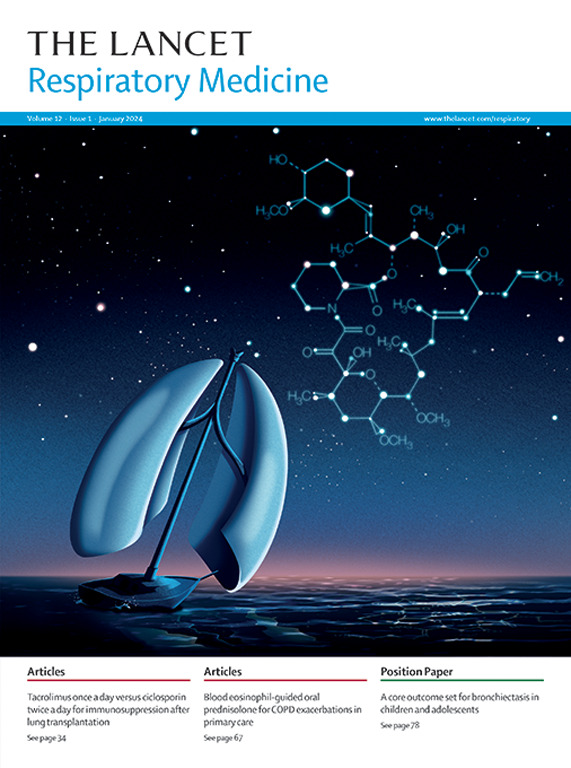优化心源性休克的试验设计:来自第六届重症监护临床试验专家研讨会的见解
IF 38.7
1区 医学
Q1 CRITICAL CARE MEDICINE
引用次数: 0
摘要
尽管在心源性休克的治疗方面取得了重大进展,但死亡率仍高于40%。试验表明,提高心源性休克的存活率具有挑战性。即使是最成功的试验也显示死亡率降低了5-15%,而且这种获益仅限于急性心肌梗死心源性休克,约占心源性休克人群的5%。在所有心源性休克人群中研究药理学策略的试验一直是中性或阴性的。原因很复杂,包括心源性休克表型的异质性、患者纳入的时间、多器官衰竭和心脏骤停的高患病率,以及不切实际的治疗效果估计,这些都限制了样本量,有时资金不足导致试验效力不足。2024年6月,来自心脏病学、麻醉学、重症医学、生物统计学、政府试验监管和患者倡导等领域的国际专家齐聚第六届重症临床试验专家研讨会,共同探讨如何改进未来心源性休克随机临床试验的设计。本文从人群选择、主要目标、统计分析和纳入患者观点等方面总结了关于心源性休克最佳随机对照试验的讨论结果。本文章由计算机程序翻译,如有差异,请以英文原文为准。
Optimising trial design for cardiogenic shock: insights from the sixth Critical Care Clinical Trialists Workshop
Despite substantial advancements in the management of cardiogenic shock, mortality rates remain greater than 40%. Trials have shown that increasing survival rates in cardiogenic shock is challenging. Even the most successful trials show 5–15% reductions in mortality, and gains have been restricted to acute myocardial infarction cardiogenic shock, representing approximately 5% of the population with cardiogenic shock. Trials studying pharmacological strategies in all populations with cardiogenic shock have been consistently neutral or negative. The reasons are complex and include heterogeneity in cardiogenic shock phenotypes, timing of patient inclusion, high prevalence of multiorgan failure and cardiac arrest, and unrealistic estimated treatment effects that restrict sample size with sometimes inadequate funding leading to underpowered trials. In June, 2024, international experts from the fields of cardiology, anaesthesiology, critical care medicine, biostatistics, government regulation of trials, and patient advocacy convened at the sixth Critical Care Clinical Trialists Workshop to reflect on how to improve the design of future randomised clinical trials in cardiogenic shock. This Position Paper summarises the results of discussions regarding what an optimal randomised controlled trial on cardiogenic shock should entail in terms of population selection, primary objectives, statistical analysis, and incorporation of the patient's perspective.
求助全文
通过发布文献求助,成功后即可免费获取论文全文。
去求助
来源期刊

Lancet Respiratory Medicine
RESPIRATORY SYSTEM-RESPIRATORY SYSTEM
CiteScore
87.10
自引率
0.70%
发文量
572
期刊介绍:
The Lancet Respiratory Medicine is a renowned journal specializing in respiratory medicine and critical care. Our publication features original research that aims to advocate for change or shed light on clinical practices in the field. Additionally, we provide informative reviews on various topics related to respiratory medicine and critical care, ensuring a comprehensive coverage of the subject.
The journal covers a wide range of topics including but not limited to asthma, acute respiratory distress syndrome (ARDS), chronic obstructive pulmonary disease (COPD), tobacco control, intensive care medicine, lung cancer, cystic fibrosis, pneumonia, sarcoidosis, sepsis, mesothelioma, sleep medicine, thoracic and reconstructive surgery, tuberculosis, palliative medicine, influenza, pulmonary hypertension, pulmonary vascular disease, and respiratory infections. By encompassing such a broad spectrum of subjects, we strive to address the diverse needs and interests of our readership.
 求助内容:
求助内容: 应助结果提醒方式:
应助结果提醒方式:


